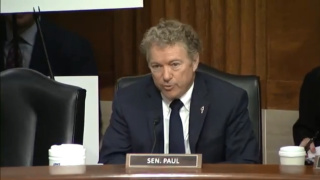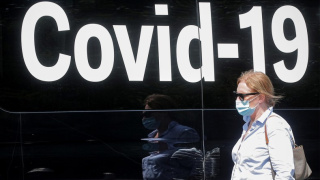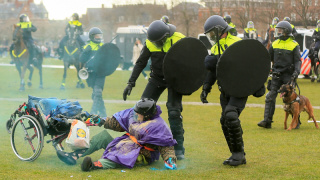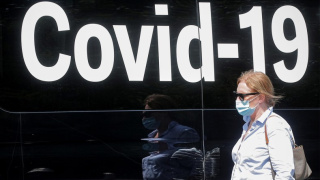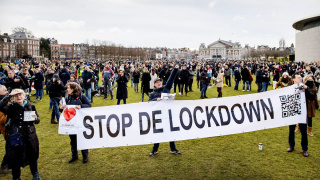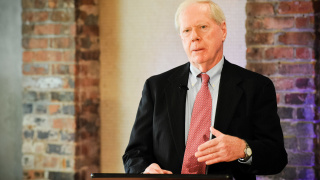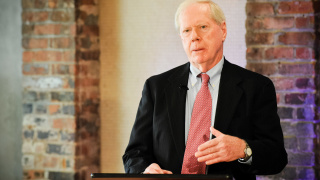The Coronavirus Panic: Counting the Cost
Will anyone be outraged if I say how much I have enjoyed the lockdown? On the one hand, I have the spectacle, as often as I step outside, of fools shambling about in face masks and rubber gloves – all ready to start whining about piffling infractions of the distancing rules, and all doubtless trying to outdo each other in the weekly Two-Minute Love for the NHS. On the other hand, my own life has not been this pleasant in years. Deal is quiet. Deal is clean. Excepting the charity shops, all the establishments my women and I normally frequent remain open. The others were filled with overpriced tat. We never visited pubs and restaurants, and have barely noticed their closure – except in the sense that it has contributed to the present cleanliness and peace.
As for money, I have kept my most important employments. I have even picked up more work, and I am busier now than before the lockdown started. I am busier without having to rush about – sharing what I regard as a personal space of two foot in all directions with coughing, farting strangers, touching handles previously touched by countless dirty hands, sitting in places vacated by countless uncleansed bottoms. Instead, I get up after the third hour of daylight, and I earn our bread without leaving the house. My costs of doing business have collapsed.
I deplore the hysteria. I resent being sprayed, as often as I look at the media, with lies about the hecatombs of dead. But I have had a wonderful lockdown. My wife is happy. My daughter has time to learn Latin with me, and to write another book; and she has finally cracked sight-reading, and is deep into the first movement of The Moonlight Sonata. We have all had a wonderful lockdown, and are beginning to regret that it must soon end.
But will it end? The partial lockdowns that attended the Spanish Flu of a hundred years ago had to end, because there was no alternative to ending them. Unless people went back into those close-packed factories and offices, unless they started pressing against each other again in the busses and trams and railways trains, their society would have collapsed. There may have been a slight increase in the rate of new telephone connections. It is hard, though, to see any lasting footprint of the greatest pandemic since people stopped wearing funny clothes and using horrid toilets. This time it will be different, because there is this time an alternative.
Yes, I have written already – here and here – about the changes we can expect. But I can now see evidence of the new order of things that will rapidly emerge.
See this from The Guardian for the 29th April 2020:
The chief executives of Barclays and WPP are predicting an end to crowded city centre offices and rush hours as flexible working becomes the new normal to keep the workforce healthy amid the Covid-19 crisis.
Jes Staley, the chief executive of Barclays, said the bank would look at a more de-centralised approach to staff working, including the prospect of local branches becoming satellite offices for more employees.
“I think the notion of putting 7,000 people in a building may be a thing of the past, and we will find ways to operate with more distancing over a much longer period of time,” he said.
“You’re going to find we use much more significantly our branches as alternative sites for investment bankers and call centre workers and people in the corporate bank,” he explained.
The view is echoed by Mark Read, the chief executive of WPP, the world’s biggest employer in the marketing and advertising sector with 106,000 staff. He said employees returning to work would be in offices at “substantially lower capacity with enhanced safety measures”.
The Coronavirus and its aftermath of lingering paranoia are the perfect excuse. Decentralisation and homeworking must be done. They must be done for the duration. They must be continued after that to maintain social distancing. No one will think ill of Barclays and WPP for taking the leap. No one will blame them for taking the leap in a way that involves a few deviations from course and a less than elegant landing. A year from now, these organisations will be making measurably larger profits than they would be otherwise. The mistakes will have been ignored.This are not acts “for the duration.” They are not the desperate responses of businesses about to fold – both are large organisations with the money to ride out any number of crises. Far more likely, the Coronavirus panic is being used as an excuse to do in a hurry what had been previously discussed and considered over many years. The idea of turning large organisations into decentralised networks, most of their staff working at home or away from prime office locations, has been with us for decades. The technology to make it possible has been with us for at least a decade. What held it up for large organisations was that it would be a leap in the dark. At first, it would bring a loss of prestige. Large organisations are defined in part by large towers in the middle of large and expensive cities. Walking away from these towers would raise eyebrows. Questions would be asked about underlying financial health. After that, every unexpected problem would start a litany of complaints from shareholders and the other affected interests. Get something seriously wrong, and those behind the changes might be looking for new jobs – looking for new jobs as men stamped with memorable failure.
And other organisations will follow. Whether the present crash will bring on a depression shaped like a V or an L, there is no doubt that, even if slowly at first, the wheels of commerce will continue turning. But they will be turning on different rails. As with any change of course, there will be winners and losers. I have already discussed how I can expect to be among the winners. I will leave that as said for the other winners – these being anyone who can find a market for doing from home what was previously required by custom and lack of imagination to be done somewhere else. I will instead mention the losers.
Most obvious among these will be anyone involved in commercial property. Landlords will find themselves with many more square feet to fill than prospective tenants want to fill. Rental and freehold values will crumble. Bearing in mind how much debt is carried by commercial landlords, there will be some interesting business failures in the next few years. Then there are the ancillary sectors – property management companies, commercial estate agents, maintenance companies. These employ swarms of architects and surveyors and lawyers and negotiators, of builders, plumbers, electricians, of drivers and cleaners. If the humbler workers will eventually find other markets, many with degrees and professional qualifications can look to a future of straitened circumstances.
The lush residential estates in and about Central London will follow. I think particularly of the aristocratic residential holdings in Kensington. Houses here go for tens of thousands a week to senior bank workers from abroad. If the City and Canary Wharf are emptied out, who needs to live in a place like Kensington? It has poor Underground connections. It is close by places like Grenfell Tower. Its residents keep predators at bay only by heavy investment of their own in security and by suspecting every knock on the door and every sound in the night. Many of the shops and eateries that make its High Street an enjoyable place to be will not reopen. Those that do reopen will be hobbled by continuing formal and informal rules on social distancing.
As a result, restaurants and pubs and coffee bars will begin to disappear. All but a few of these were barely making normal profit before they were closed last month. So few are in liquidation as yet only because so few petitions have been lodged in the courts. Most of them will now be surplus to requirement. The same can be said of hotels. Speaking for myself, I used to visit Cambridge twice a year on examinations business. I was always put up there for a couple of nights. I shall now do from home all that I did in Cambridge. I doubt I am alone. Zoom will destroy business travel. In the same way, bigger televisions plus continued social distancing will finish off the theatres and cinemas – also in decline before last month.
And this, given a reasonable policy response, is the depression we face. Most of the present drop in output will be recovered in a few months. The remaining hardship will be in those sectors that have been made subject to an accelerated process of creative destruction. Put me in charge, and I would never have done this. I would never have pressed a button to sweep away those multitudes of occupations. I would have left the changes to come as and when. Instead, a decade of economic change is being compressed into a single year.I could continue. I could stop for a gloat over the newspapers. These make almost nothing from their on-line editions. Their print editions were kept going by habitual buying. These habits have been disrupted and will not fully recover. Goodbye to publications that never commissioned anything from me. Goodbye to newspaper writers whose employment has been a leading cause of political and cultural degradation. But I think the pattern is clear. Though vast, the impact on the economy of the Coronavirus panic is not, or will not be, comparable to an asteroid impact or a nuclear war. These things destroy indiscriminately. There is nothing indiscriminate here. The panic is like the virus itself. It destroys those who were already weak, already likely to go down in the near future. Others may suffer who were not already weak – but these will be the minority. They will be like lumps of polystyrene carried down part of the way by a sinking ship.
This being so, I might as well shut up about the virus in itself. It has been the epidemiological equivalent of Comet Kohoutek, which was supposed to light up the sky in 1973, but turned out invisible even to my telescope. Its consequences, however, may be to make my life more comfortable, while putting an end to many of the things I dislike.

